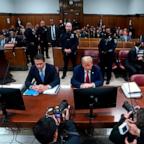Learn to Recognize the Latest Scams
How to recognize the latest scams.
March 19, 2012 — -- I have some con artists to thank for today's column. Yes, you heard that right. This week's topic arrived by mail -- in the form of a classic come-on. My husband received a $3,850 check in the mail. It looked awfully official, complete with "security features" and bank account numbers. I'm going to dissect if for you, to show all the tip-offs to a rip-off. Here's a picture of the "check.":
Your heart DOES do a little pitter pat at first, eyeballing a substantial sum like that. However, the accompanying letter gives the ploy away. The crooks have managed to roll two oldies but baddies into one: the foreign lottery scam and the check overpayment scam.
The letter announces "Cash Prize Notification" and goes on to say, "…you are one of the winners in the "CONSUMER PROMOTIONS SWEEPSTAKES DRAWING." Pretty thrilling, right? But here's the clue: "…this draw was held in the United Kingdom." It's actually illegal for Americans to participate long-distance in foreign lotteries. Therefore, if you're ever told you have won one (especially one you never entered!), it's a scam. Period.
There's another clue, too. The letter informs the recipient that the prize winnings will be delivered by a courier company. The bad guys try to avoid sending their correspondence by U.S. Mail, because they don't want to be subject to U.S. mail fraud laws. I suspect that if my husband had fallen for this plot, future correspondence from the crooks would have, indeed, arrived via a private courier.
In a sick sort of way, you have to admire the crooks' handiwork. They even managed to use postage that looks like it's from a foreign country. Wow! It came via the "Royal Mail!" Actually, it's quite possible the letter WAS sent from another country, because often con artists prey upon Americans from beyond our borders, knowing it's very hard for US authorities to prosecute them. I took a picture of the postmark too:
So how were the thieves going to profit? Let's go back to the letter. The "company" has sent my hubby a check for $3,850 and says that's to cover the "Tax Clearance Fee." But here's the trick. The tax clearance amount is NOT "$3,850. It's $1,950! The company has overpaid my husband! Why? The crooks want their victims to deposit the $3,850 check in their accounts and forward them $1,950 of their own money. By the time the victims find out that the $3,850 check is bogus, their OWN money is long gone.
That, my friends, is the latest example of the "Check Overpayment Scam." It comes in many forms. The classic is that if you are selling something, like a used car, a stranger may send you a check for more than the asking price and ask you to forward them the difference, while they arrange to have the car transported to them. The crooks have a million excuses for why they've sent too much money and why you need to forward them the difference. Never, ever do it. If a stranger overpays you by check, it's a scam. Period.




